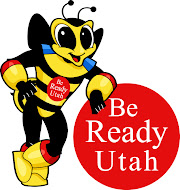Each person's needs and abilities are unique, but every individual can take important steps to prepare for all kinds of emergencies and put plans in place. By evaluating your own personal needs and making an emergency plan, you can be better prepared for any situation. A commitment to planning today will help you prepare for any emergency situation. Preparing makes sense. Get ready now.
- Consider how a disaster might affect your individual needs.
- Plan to make it on your own, at least for a period of time. It's possible that you will not have access to a medical facility or even a drugstore.
- Identify what kind of resources you use on a daily basis and what you might do if they are limited or not available.
- Get an emergency supply kit.
- If you must evacuate, take your pets with you, if possible. However, if you are going to a public shelter, it is important to understand that animals may not be allowed inside.
- Plan in advance for shelter alternatives that will work for both you and your pets; consider loved ones or friends outside of your immediate area who would be willing to host you and your pets in an emergency.
-
Encourage electronic payments for federal benefit recipients. Keep in mind a disaster can disrupt mail service for days or even weeks. For those who depend on the mail for their Social Security benefits, a difficult situation can become worse if they are evacuated or lose their mail service – as 85,000 check recipients learned after Hurricane Katrina. Switching to electronic payments is one simple, significant way people can protect themselves financially before disaster strikes. It also eliminates the risk of stolen checks.
The U.S. Department of the Treasury recommends two safer ways to get federal benefits:- Direct deposit to a checking or savings account is the best option for people with bank accounts. Federal benefit recipients can sign up by calling (800) 333-1795 or at www.GoDirect.org.
- The Direct Express® prepaid debit card is designed as a safe and easy alternative to paper checks for people who don’t have a bank account. Sign up is easy – call toll-free at (877) 212-9991 or sign up online at www.USDirectExpress.com.
Signing up for direct deposit or the Direct Express® card is a simple but important step that can help protect your family’s access to funds in case the unthinkable were to happen. If you or those close to you are still receiving Social Security or other federal benefits by check, please consider switching to one of these safer, easier options today.
Create a Support Network
- If you anticipate needing assistance during a disaster talk to family, friends and others who will be part of your personal support network.
- Write down and share each aspect of your emergency plan with everyone in your support network.
- Make sure everyone knows how you plan to evacuate your home or workplace and where you will go in case of a disaster.
- Make sure that someone in your local network has an extra key to your home and knows where you keep your emergency supplies.
- Teach those who will help you how to use any lifesaving equipment, administer medicine in case of an emergency.
- Practice your plan with those who have agreed to be part of your network.
Additional Supplies and Documents:
Medications and Medical Supplies
If you take medicine or use a medical treatment on a daily basis, be sure you have what you need to make it on your own for at least a week, maybe longer.
- Make a list of prescription medicines including dosage, treatment and allergy information.
- Talk to your pharmacist or doctor about what else you need to prepare.
- If you undergo routine treatments administered by a clinic or hospital or if you receive regular services such as home health care, treatment or transportation, talk to your service provider about their emergency plans. Work with them to identify back-up service providers and incorporate them into your personal support network.
- Consider other personal needs such as eyeglasses, hearing aids and hearing aid batteries, wheelchair batteries, and oxygen.
Emergency Documents
Include copies of important documents in your emergency supply kits such as family records, medical records, wills, deeds, social security number, charge and bank accounts information and tax records.
- Have copies of your medical insurance and Medicare cards readily available.
- Keep a list of the style and serial number of medical devices or other life-sustaining devices. Include operating information and instructions.
- Make sure that a friend or family member has copies of these documents.
- Include the names and contact information of your support network, as well as your medical providers.
- If you have a communication disability, make sure your emergency information notes the best way to communicate with you.
- Keep these documents in a water proof container for quick and easy access.
This information is from FEMA.GOV.










